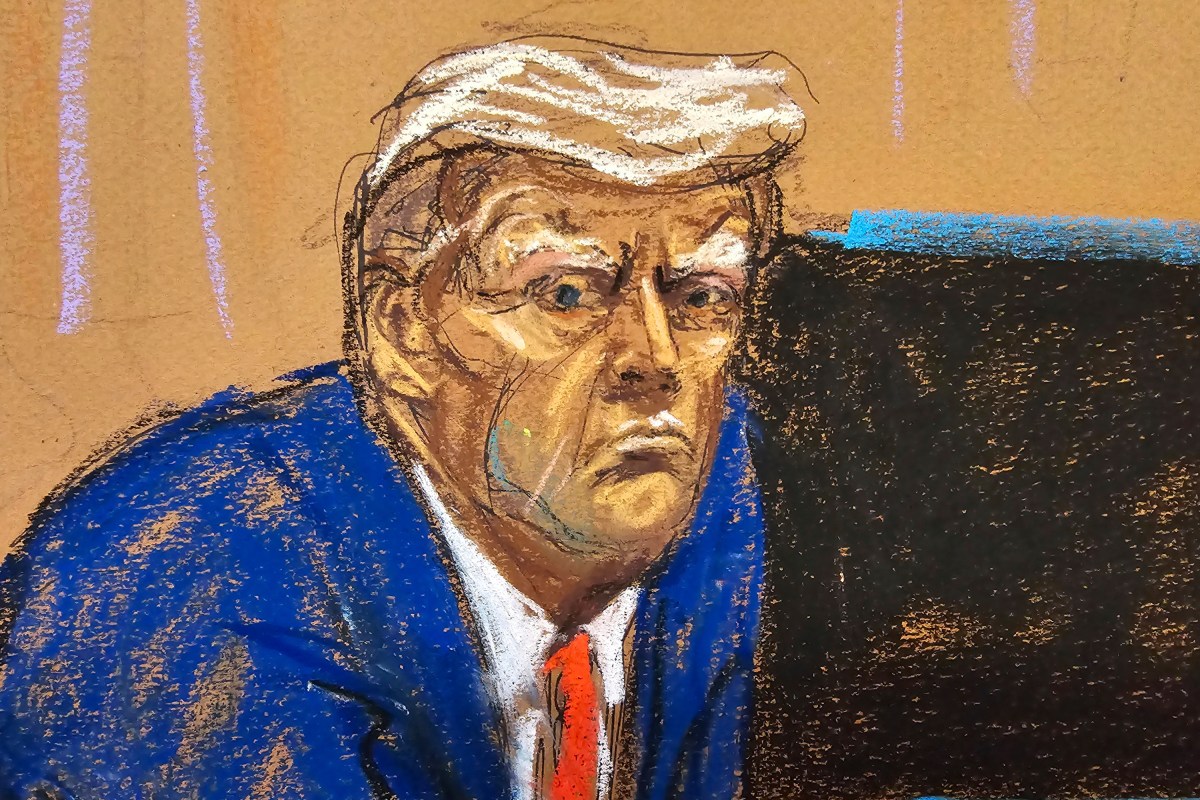Most media outlets have settled on the moniker “hush money trial” to describe Donald Trump’s most immediate legal entanglement. (The Monthly uses this familiar tagline, too.) This makes sense on one level: Trump is facing 34 indictments for “falsifying business records in the first degree” in a scheme to violate campaign finance laws by paying for the silence of those who could have derailed his 2016 campaign without having to call them campaign expenses.
But Trump’s transgressions go beyond conspiring to lie to voters and falsifying financial documents around those lies. He allegedly conspired to defraud the public by classifying the payments as business expenses. He conspired to submit fraudulent tax documents by letting his fixer, Michael Cohen, appear to receive the money intended for Stormy Daniels.
For those who have been hiding under a rock, a Manhattan grand jury indicted Trump on 34 counts of falsifying business records as part of hiding hush money payments to two paramours, a former “Playmate of the Year” Karen McDougal, Daniels, and a doorman who claimed to have evidence of a child born from another affair. In two cases (the doorman and McDougal), Trump paid a tabloid to “catch and kill” the stories; in Daniel’s case, Trump reimbursed Cohen, who paid her. Cohen pled guilty in 2018 in federal court to multiple counts of fraud in connection with these payments. The U.S. Attorney for the Southern District of New York who secured Cohen’s conviction never sought to indict Trump, but Alvin Bragg, the Manhattan DA, picked up the baton. Our own Jonathan Alter has been tracking daily developments in the case.
If found guilty, the most consequential crimes are those that helped Trump evade public scrutiny for cheating with an adult film star four months after his wife had given birth. True, Trump’s reputation as a philanderer was legendary well before he sought office. He fanned the flame of his affair with actress Marla Maples, which was the proximate cause of the end of his first marriage to Ivana Trump. In the case of Daniels, Trumpworld was deeply concerned about the impact that the affairs would have on his marriage and his campaign, especially in the days after the release of the Access Hollywood tape in which he talked about grabbing women by the genitalia. It’s hard to remember now, but that event shocked the country and forced a rare direct-to-camera apology from Trump. The revelation of hush money to Daniels might have caused Trump to lose the 2016 race.
There’s another way that the Manhattan trial is hurting Trump. The 77-year-old has spent decades cultivating the image of a boorish but fabulously successful businessman playboy, and many fans support him precisely because of the aura he projects around money and sex.
More threatening to Trump’s image is the reality that belies the mirage of business success: his pattern of breathtaking fraud. Trump has spent a lifetime conning investors in his casinos, scamming students at his fake university, lying to banks about the value of his real estate holdings, and bilking investors in his social media company out of their life savings—to name a few examples.
In the so-called “hush money” case, Trump is alleged to have overpaid Cohen to cover his tax liability for appearing to take attorney payments when, in reality, they were pass-throughs to Stormy Daniels. This would be a criminal falsification of tax documents by itself—one of which Cohen himself was already convicted. All District Attorney Bragg needs to do is prove that Trump directed and knew about the crime to which Cohen already pled guilty.
There’s something worse: if Trump paid Cohen from the Trump Organization’s business account as he appears to have done, then Trump’s business would almost certainly be deducting the expenses. While that may or may not be technically illegal by itself (lying about the nature of the payment is the crime for which Trump is being charged), few Americans would have the depravity to deduct their porn star hush money payment.
Even if it’s not a crime, the devil-may-care attitude toward personal and business ethics defines Trump’s sordid career. It’s also essential to the case, which is as much about systemic fraud as it is about hush money.
The sort of men who might forgive (or, at some level, admire) the former president for cheating on his wife with an adult film actress—many of them wishing they could do the same—might be less willing to forgive a man who cheats so flagrantly on his taxes when they can’t get away with much less. That Trump is so cheap that he needed to get the tax deduction suggests less Bacchanal Billionaire and more Mr. Potter, the It’s a Wonderful Life banker/villain who nickels and dimes all the hardworking Americans around him.



